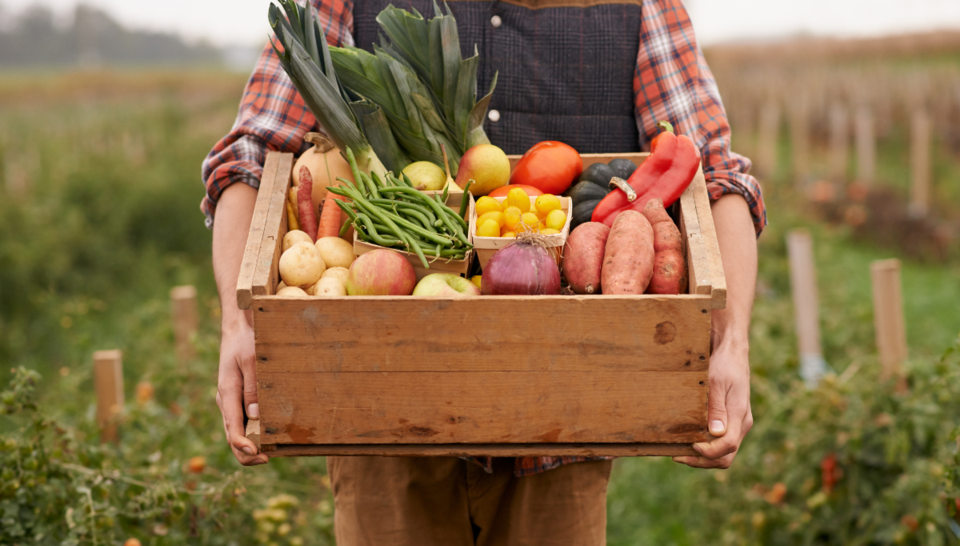Currently, Ontario is losing farmland to non-agricultural uses, such as urban development and aggregate extraction, at a rate of 319 acres per day (Statistic Canada, 2021) The Ontario Farmland Trust (OFT) is an organization whose mandate is to protect and preserve farmland, and it believes the current rate of farmland loss is unsustainable.
Rachel Hopf, OFT’s Fund Development Manager says, “Every person in the province relies on Ontario agriculture for the food they eat, not to mention the hundreds of thousands of jobs involved in getting the food to our dinner plates. We need to do everything we can to ensure we can continue feeding future generations.”
In the past 35 years, Ontario has lost 2.8 million acres or nearly 20% of its farmland to uses that are not agricultural. Martin Straathof, Executive Director of OFT shares, “Without polices in place to protect and preserve our farmland, our ability to produce enough food to feed Ontarians into the future may be put at risk.”
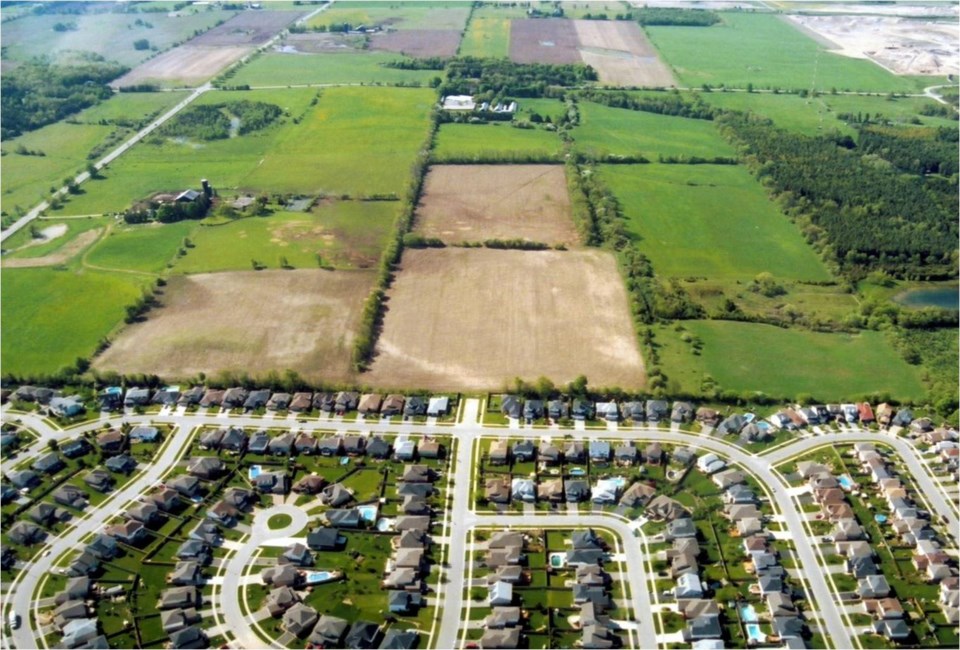
A vision for the Ontario Farmland Trust was developed nearly 20 years ago when farmers, conservationists, planners, and academics laid the foundation for farmer-led and community-driven action on farmland protection.
Today, OFT has over 2,500 acres of farmland under easement protection on 22 farm properties stretching from the shores of Lake Huron to Prince Edward County. These farms also provide habitat to many provincially listed species at risk, such as the Barn Swallow – a small, low-flying bird that relies heavily on barns and farmland for nesting.
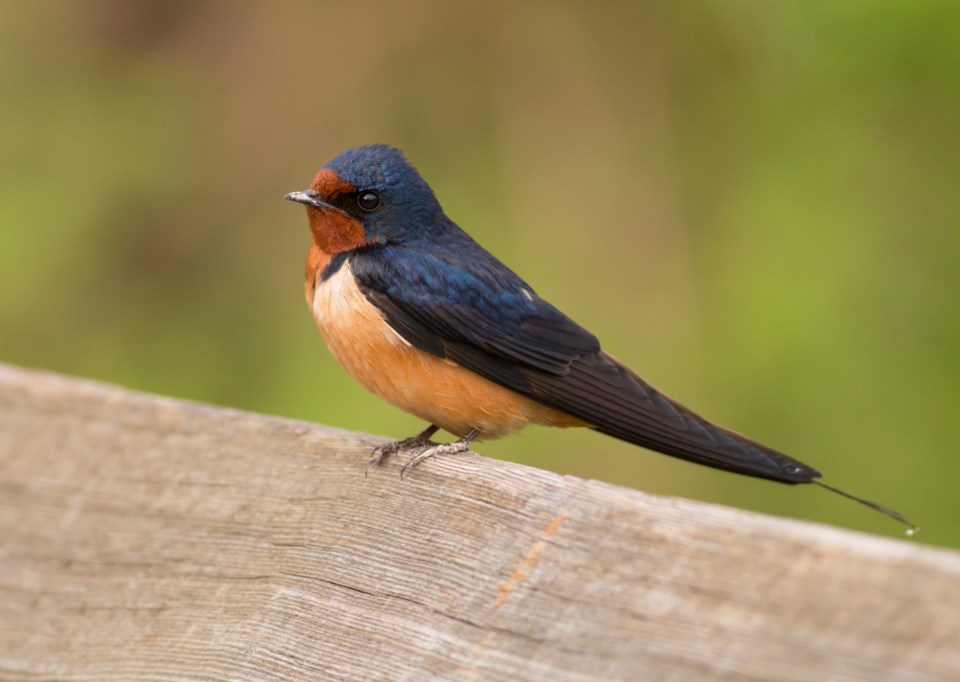
Protecting land with Conservation Easement Agreements
OFT was instrumental in having the Conservation Land Act amended to allow for conservation easement agreements. It’s a legal agreement with an interested farmer or farmland owner, ensuring that a tract of land will remain in agriculture permanently. Straathof says, “Landowners who are concerned about the future of their agricultural property might want to consider a Conservation Easement Agreement because it provides confidence that the land will always be available to feed future generations.”
OFT is currently working with many farmers across the province to permanently protect their farms through easement agreements. They would like to see easement agreements established in particularly high-risk areas. Straathof says, “Putting easements on a group of properties clustered in one area gives those farmers and related businesses some assurance that the land is protected, and that local individuals and businesses involved in the agricultural production and processing of their products can continue to be part of the agricultural process for the long term.”
While OFT traditionally has focused on easement agreements, they also can accept donations of farmland. A unique management plan is developed for each property, ensuring that the land can continue to be utilized effectively as farmland.
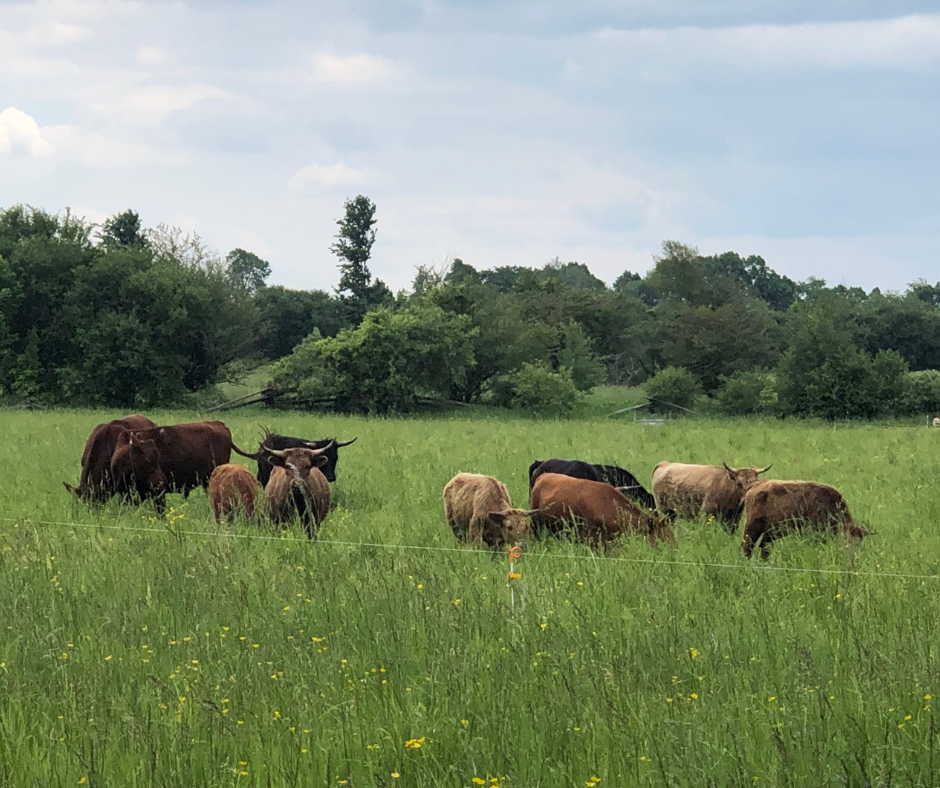
Educating the community
OFT believes the key to protecting and preserving farmland is through education. To that end it is launching its Winter Webinars, a series of free online webinars created to explore pressures on farmland, learn about solutions, and share innovative ideas. The first webinar is happening on Tuesday, October 31st from noon to 1pm. The topic is “Balancing Farmland Protection and Housing Supply.”
Hopf says, “For those following the Greenbelt controversy, the talk is very timely. It will focus on protecting farmland while recognizing that we need more housing, and how the two issues, while seemingly very different, are actually closely intertwined.”
The live webinar will be led by Margaret Walton, Chair of the OFT Board of Directors and Senior Associate with Planscape, and OFT Executive Director Martin Straathof. To register and view upcoming webinar topics visit: www.ontariofarmlandtrust.ca
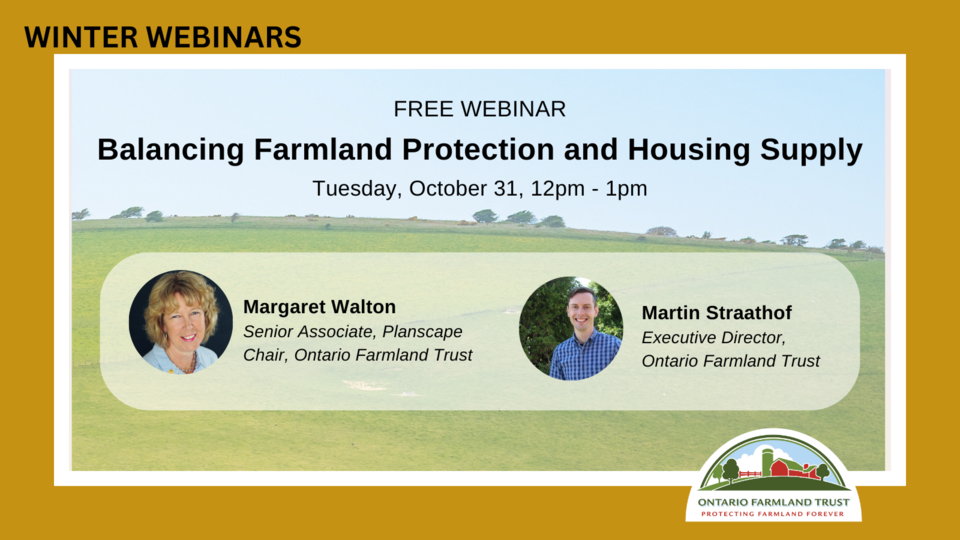
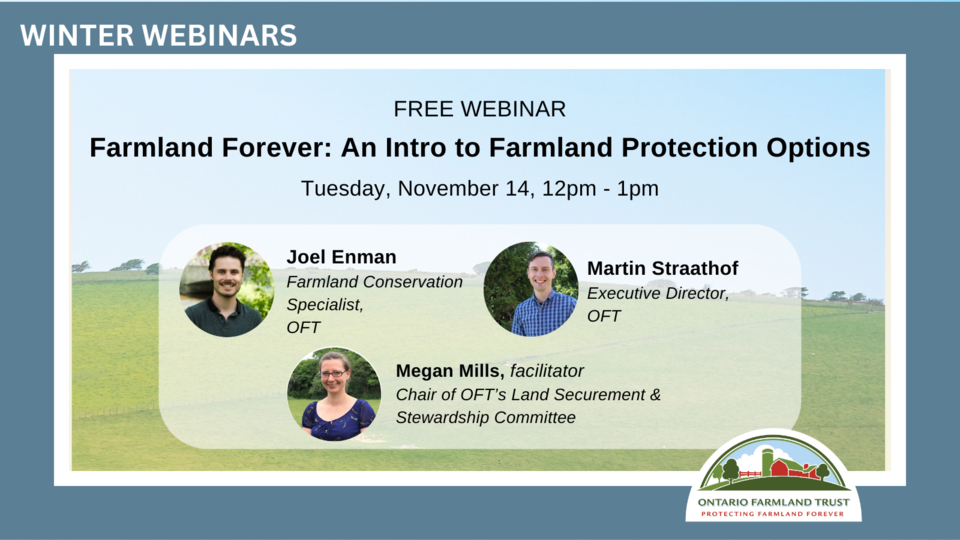
Policy development
Land use planning policies in Ontario protect a great deal of farmland. OFT speaks to potential planning policy implications to help the community and farmers understand the proposed policy’s benefits and drawbacks. Only half of Ontario’s farmland and natural areas are currently protected by provincial policies and those policies are constantly changing. Hopf says, “This is why OFT is working with the provincial government to encourage greater protection for agriculture and farmland through planning and policy development.”
Looking to the future
The Ontario Farmland Trust provides an opportunity for collaboration between farmers, conservationists, policymakers, and the public. This collaborative approach is essential for creating sustainable solutions, promoting responsible land use practices, and ensuring that farmland is preserved for future generations.
Next year is OFT’s 20th anniversary. They are hoping to partner with individuals, businesses, and corporations to continue their progress in protecting Ontario’s farmland. Financial support is crucial to allow them to continue their work. By safeguarding this precious resource, the Ontario Farmland Trust ensures food security, environmental conservation, and makes a significant contribution to the overall well-being of Ontarians.
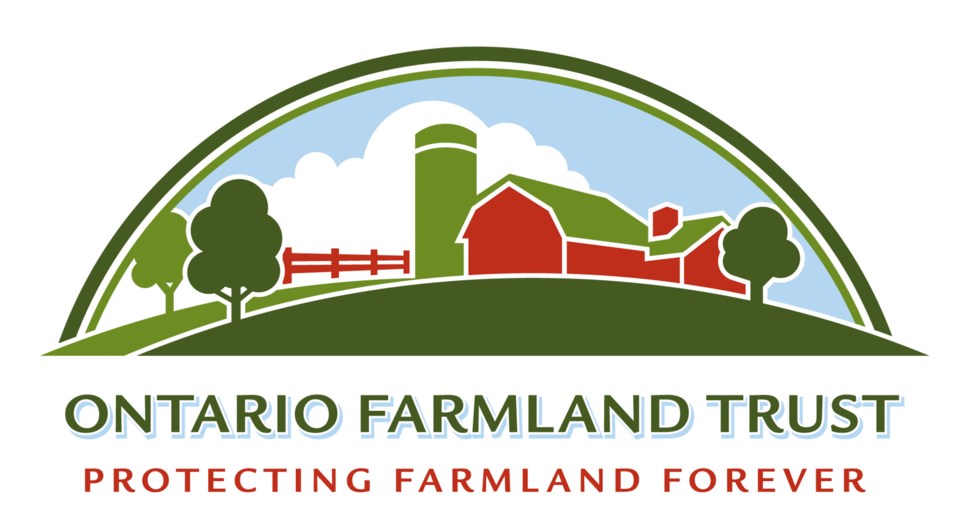
To donate or learn how you can support Ontario Farmland Trust visit: www.ontariofarmlandtrust.ca
Ontario Farmland Trust gives thanks to The RC Team for donating this Spotlight Article to help share their story.
